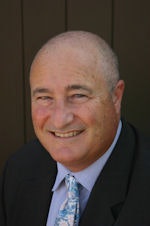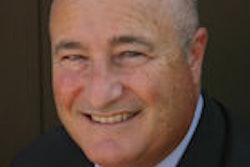
There's increasing pressure within radiology practices. The pressure to produce: to work harder and faster to keep up with volume. The pressure to prosper: to stay ahead of the curve of the Workload-Reimbursement Gap, the combined effect of an increase in work and a decrease in reimbursement.
 |
| Healthcare business and legal affairs expert Mark F. Weiss. |
As a result, they are often caught off guard when an event of earthquake-like magnitude shakes the group's world:
- The hospital CEO tells you that unless you agree to cut your stipend to zero, the hospital will issue a request for proposal (RFP) for radiology services.
- Your hospital opens a new clinic directed solely at charity care, and almost overnight 25% of your cases become "no pay" or, at best, very low pay.
- The hospital at which your group is based closes.
Fact or fiction for your group, each of these instances, and many more both similar and dissimilar, has impacted my clients over the years.
Radiologists are highly trained to find and explain what exists. This focus tends to carry over to the way that radiology group leaders view operational concerns, placing their emphasis on existing issues and relationships. But to be the most successful over time, group leaders must spend time imagining what might be, attempting to predict what events and trends are in store for your group, whether or not they are likely to occur.
As Nobel laureate Niels Bohr said, prediction is very difficult, especially about the future. But just because it's difficult, doesn't excuse you from attempting to predict the possible bumps and turns in store for your group, from attempting to protect your profits and guard against significant business setbacks.
This process of identifying potential events and trends, of conducting what I call the Scenario Survey Process, is a necessary part of establishing a vibrant overall strategy for your group's success.
Setting strategy, not planning
Before going further, it's essential that you understand the important distinction between planning and strategic thinking.
Planning is a process of projection, and that's its initial defect: It is based entirely on an extrapolation from the present. This differs from strategic thinking, which is based on envisioning a future, then designing the strategies and tactics to, in essence, cause that future to pull you toward its accomplishment.
Planning suffers from a second major defect: It is based on the inherent assumption that the foundational facts underlying the plan will remain the same. For example, that the hospital will never close or that a "national group" won't seduce the hospital into staffing from Sri Lanka. But life isn't that simple, and tectonic shifts such as, and very different from, those happen and must be considered in the development of your group's overall business strategy.
Lastly, planning suffers from a third major defect intrinsic in the way that the term is commonly used and understood: In practice, the planning process results in the creation of an immutable document often placed in a nice binder, after which it's allowed to yellow with age. Strategy, on the other hand, involves an ongoing, changing process that, if done right, includes the regular revisitation of potential scenarios as a core part of that living process.
Low probability but high impact
In essence, a Scenario Survey involves identifying as many possible scenarios -- that is, as many conceivable "worlds" of the future -- as possible. It's a hunt for your own black swans: events that, no matter how low their probability of occurrence, pack the potential for high impact.
For example, for a radiology group doing business at only one facility, the odds that the facility will be physically destroyed by a natural disaster are low, but the impact of that event would be disastrous to your practice.
The purpose of the Scenario Survey is not to simply indentify scenarios or judge the odds that they might occur and estimate the damage that would result. No matter how expert one is at playing this game, it would be impossible to identify all the possibilities, assign probabilities to their occurrence, value their impact, and therefore assign a meaningful valuation to the risk.
Instead, the purpose is to identify classes of underlying trends and issues, then assess the development of group strategy so that it remains valid in as many possible classes of the future as possible. For example, other possible scenarios likely belong in the same class as the destruction of the facility, such as the closure of the hospital. Related questions within that classification include a consolidation of the market for healthcare services such that the number of hospitals drastically declines.
The more scenarios in which a strategy would take place, the more robust that strategy is; accordingly, it is more likely that the strategy will serve you well. Alternatively, a strategy that survives only in one possible future, the more fragile and prone to failure it likely will be.
The Scenario Survey is a valuable tool in the development of your group's strategy. Its use strengthens strategy and therefore strengthens the odds of your group's success.
Mark F. Weiss is an attorney who specializes in the business and legal issues affecting radiology and other physician groups. He holds an appointment as clinical assistant professor of anesthesiology at University of Southern California's Keck School of Medicine and practices nationally with the Advisory Law Group, a firm with offices in Los Angeles and Santa Barbara, CA. Mr. Weiss provides complimentary educational materials to our readers. Visit www.advisorylawgroup.com for his free newsletter. He can be reached by email at [email protected].
Copyright © 2011 Mark F. Weiss



















